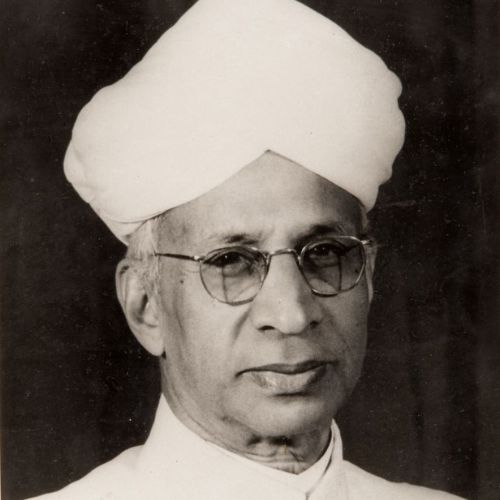Early Life:
Dr Sarvepalli Radhakrishnan was born on September 5th, 1888 in Tiruttani, a town in Tamil Nadu. He pursued his BA with Philosophy Honours and graduated with a Master’s degree in Philosophy from the Madras Christian College.
After graduation, in 1909, he began his prolific academic career with a temporary teaching position at the Presidency College in Madras. Further, in the year 1918, he was appointed as a Professor of Philosophy at the University of Mysore. In 1921, he was appointed as the professor of Philosophy to the King George V Chair of Mental and Moral Science at the University of Calcutta. A decade later, he attained Knighthood and subsequently, was appointed as a Spalding Professor of Eastern Religions and Ethics at Oxford University. He has the distinction of being the first Indian to hold a chair at Oxford University.
Contribution to Constitution Making:
Radhakrishnan was elected to the Constituent Assembly from the United Provinces on a Congress Party ticket. In the Assembly, he intervened on minorities issues and objectives resolution debates.
Later Contributions:
Post-independence, Radhakrishnan led the Indian delegation to the United Nations Educational, Scientific and Cultural Organization (UNESCO) between 1946-1952. He was later elected to hold the post of Chairman of the UNESCO’s Executive Board for the year 1948-1949. Subsequently, he was deputed as the Indian Ambassador to the Soviet Union till 1952.
Upon his return to India, he was elected as India’s first Vice President. Subsequently, in the year 1962, he went on to become the 2nd President of India succeeding Dr Rajendra Prasad. He served his post till 1967 and retired from public life.
Radhakrishnan died on April 17, 1975.
Key Writings:
S. Radhakrishnan was a renowned scholar and published extensively on philosophy and religion. Some of his writings include Indian Philosophy, The Philosophy of the Upanishads, An Idealist view of life, Eastern Religions and Western Thought, and East and West: some reflections. His M.A thesis, titled the Ethics of Vedanta and Its Metaphysical Presuppositions, is also considered an invaluable source on the interplay between ethics and Vedanta. In the course of his writing career, he authored several commentaries on Indian works including the Bhagavad-Gita, Brahma Sutra, Upanishads and the Prasthanatraya. In his lifetime, he was also nominated 16 times for the Nobel Prize in Literature.

